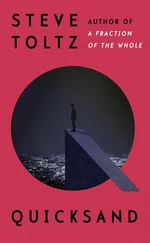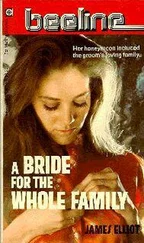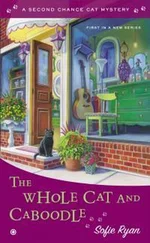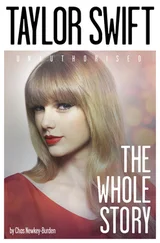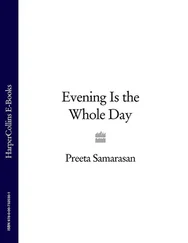Anouk was lying on her daybed making SAVE THE FOREST signs when I shuffled in. I didn’t bother asking what forest.
“Hey, you free tonight?” she asked.
“Today’s not the day to ask me to save anything,” I said. “The way I’m feeling right now, wholesale destruction is more in my line.”
“It’s not for that. I’m doing the lighting for a play.”
Of course she was. Anouk was the busiest person I knew. She began every day making long lists of things to do, which by the end of the day she had actually done. She filled every minute of her life with meetings, protests, yoga, sculpting, rebirthing, reiki, dance classes; she joined organizations, she left organizations in a fury; she handed out pamphlets and still managed to squeeze in disastrous relationships. More than anyone I’ve ever known, she had a life rooted in activity.
“I don’t know, Anouk. Is it a professional play?”
“What do you mean?”
What did I mean? I meant that I respect the right of anyone to stand up onstage and speak in a booming voice, but that doesn’t make it a tolerable night out. From previous experience I could say without prejudice that Anouk’s friends took amateur theater to new, incomprehensible lows.
“Is Dad speaking to you?” I asked.
“Of course.”
“I thought after the other night he might have been inclined to murder you.”
“Not at all. He’s fine.”
“He’s fine? I thought he was depressed and suicidal.”
“So are you coming to the play or not? In fact, I’m not giving you an option. You’re coming, that’s all there is to it.”
***
There’s theater, there’s amateur theater, and then there’s just a group of people who bump into each other in a dark room and make you pay for the privilege of cringing for two hours. This was that kind, and every second hurt.
Anouk was responsible for the operation of a single spotlight, which she swung around the stage as if she were looking for an escaped prisoner going over the wall. Forty minutes in and I had exhausted all my sudden-apocalypse fantasies, so I swiveled around in my seat and looked at the faces of the audience. The faces I saw seemed to be enjoying the play. My bewilderment was indescribable. Then I really thought my eyes were playing tricks on me: sitting in the back row of the hall, perched on the edge of his chair, also seeming to enjoy the play, was Oscar Hobbs.
A loud, unbelievable laugh from one of the actors distracted me. It was the worst pretend laugh I’d ever heard, and I had to see who was responsible. For the next twenty minutes I was held spellbound by this minor character- his inauthentic smile, some plainly hilarious eyebrow acting, and then a whole scene of tearless sobbing- and when the play finished, the lights were turned on, the audience was applauding (perhaps sincerely ) and I scanned the room in time to see Oscar Hobbs sneak out the back door.
The next day in the morning paper there was, surprisingly, a review of the play. It astonished everyone involved in the production- a play that small and shoddy in a theater that foul and dingy didn’t usually attract professional reviewers as much as it attracted homeless people looking for some soup, and having so little faith in the professionalism of their own work, the organizers hadn’t bothered to alert the media. The strangest and most suspicious thing wasn’t the review itself but the content: it focused solely on the play’s lighting: “deeply atmospheric,” “moody and arresting,” and “bold and shadowy.” Everyone who read it agreed it was the silliest they’d ever seen. The actors, the director, and the writer weren’t mentioned. Anouk was startled both by having been singled out in the review and by the ugly and childish reaction of her colleagues, who turned on her viciously, accusing her of planting the review, bribing a journalist, and “showing off with the spotlight.”
Anouk was confused, though I wasn’t. I’d seen Oscar Hobbs at the hall, and it wasn’t hard to see his fingerprints all over this thing. What did I make of it? It was no more than amusing. The gods can step down and salivate over the mortals like the rest of us, can’t they? Anouk had one of those bodies that demanded, as a man, your rapt attention, and Oscar Hobbs was just a man, after all. As I said, it was amusing, nothing more, and while I enjoy watching the befuddlement of my family, friends, and peers, I can’t hold on to secrets for very long. So that night, after Anouk hung up the phone at the end of a long argument with the play’s producer, I told her.
“Why didn’t you tell me?” she screamed.
“I just did.”
She scrunched up her face so her eyes, nose, and mouth were no bigger than a mandarin.
“What the hell does he want?” she said quietly.
I gestured at her body and said, “Take a guess.”
“But he can get anyone he wants!”
“Maybe because of something you said to him in the casino. What did you say?”
“Nothing.”
“Come on.”
“All right,” she said. “I told him his soul’s got one of those stains on it that smudges when you try to wipe it clean.”
***
Two days later I was at work, standing outside the building smoking a cigarette with my boss, Smithy, and I was thinking I’d have to leave the job soon and I’d never forgive myself if I didn’t announce my coworkers’ faults on the way out. I was wondering whether they’d give me a quitting-in-a-huff party when I saw a Porsche Spyder drive up to a no-stopping zone and stop there. It was the kind of car James Dean died in. It was a nice car. I’d die in there too, if I could afford it.
Smithy said, “Feast your eyes on that.”
“I’m feasting.”
Oscar stepped out of the car and walked up to us. “Jasper.”
“You’re Oscar Hobbs!” Smithy said in shock.
“That’s right,” he said back.
“That must be the problem with being famous,” I said. “Everyone tells you your own name.”
“Jasper. Can I talk to you a minute?”
“Sure,” I answered and, turning to Smithy, excused myself. Smithy nodded at me enthusiastically, still wearing that shell-shocked face, the one that looked as if he’d just found a vagina among his own genitalia.
Oscar and I stepped into a small patch of sunlight. He looked nervous.
“I feel kind of funny coming to see you about this.”
“About what?” I asked, sensing the answer.
“Anouk came into my office and really let me have it for that review.”
“She did?”
“I also made sure the media reported an environmental demonstration she went on. But she was furious. I don’t understand it. She really hates me, doesn’t she?”
“It’s not personal. She hates the rich.”
“How can I get her to like me?”
“If you could demonstrate that you’re oppressed in some way, that would help.”
He nodded rhythmically, as if to a beat.
“What do you really want with Anouk, anyway? It seems that you’re making a lot of effort here. I’ve seen the women you go for. Anouk’s nice, and she has her own style of beauty, but it doesn’t really make any sense. You can rake in the über-women anytime you like. What gives?”
“The thing is, Jasper, the world is full of ordinary people. Some are beautiful, some are not. What’s rare is extraordinary, interesting, original, and creative people who think their own thoughts. Now, while waiting for this extraordinary woman, if I have to spend my time with an ordinary woman, do you think I’d be with a beautiful ordinary woman or an unattractive ordinary woman?”
There was no need to answer that, so I didn’t.
“Women like Anouk are rarer than you think.”
Читать дальше


